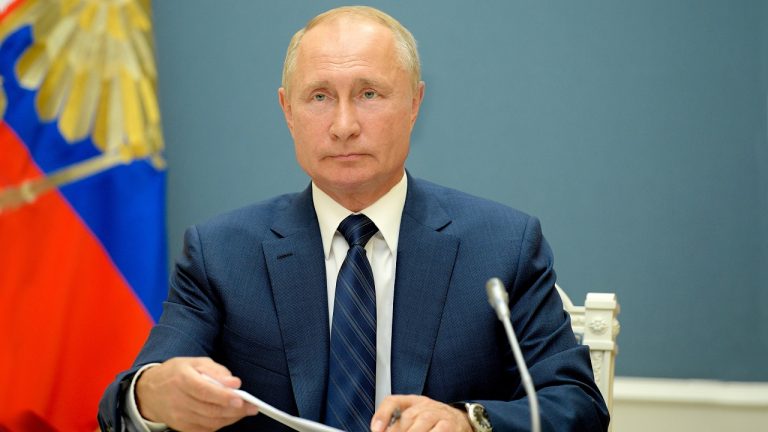
President Vladimir Putin has signed into law a bill on the introduction of the digital ruble in the Russian Federation. The new legislation, which legalizes and regulates the use of Bank of Russia’s digital currency for payments and other transactions, will enter into force on Aug. 1.
President Putin Greenlights Law Introducing Digital Ruble as New Form of Russian Fiat
Russian President Vladimir Putin has approved a bill providing the legal basis for the implementation of Russia’s central bank digital currency (CBDC), the Tass news agency and other Russian media reported. The new federal law introduces a third, digital form of the national currency, the ruble, after cash and non-cash (bank) money.
Putin’s signature opens the door for using the CBDC named “digital ruble” as a means of payment and for other transfers in the Russian Federation. These will be free of charge for citizens while businesses will pay a 0.3% commission on the amount transferred.
Transactions with the digital currency will be processed through a dedicated information system — the digital ruble platform. Under the law, the Central Bank of Russia (CBR) is the sole issuer of the CBDC and will be the only operator of its payment system.
The CBDC will be stored in digital wallets and accessed through the mobile apps of commercial banks. At the same time, the law does not permit users to open bank accounts with digital rubles or receive loans in the central bank digital currency.
Ruble Remains the Only Legal Tender in Russia
The legislation, which was passed earlier in July by both houses of Russian parliament, the State Duma and the Federation Council, introduces amendments to the country’s Civil Code. Its main provisions will enter into force on Aug. 1.
The adoption of the law is viewed as part of Moscow’s efforts to not only offer an alternative for payments inside Russia but also find ways to circumvent financial restrictions imposed over its war in Ukraine. Last week, Governor Elvira Nabiullina revealed that the CBR is exploring options to integrate its platform with other CBDC systems to facilitate the use of the digital ruble in cross-border settlements.
Russian officials have also been discussing the legalization of cryptocurrency payments, but only in foreign trade and under special legal regimes. Also this month, Putin signed a law effectively banning certain crypto payments for goods and services in Russia.
This legislation requires exchanges for digital financial assets, or tokens issued on blockchains run by authorized operators, to reject transactions where these assets can be employed as “monetary surrogates.” At least for now, the ruble, in its different forms, remains the only legal tender in Russia which is yet to determine the legal status of decentralized cryptocurrencies like bitcoin.
Do you think the digital ruble will see wide use in Russia or cross-border trade? Share your expectations in the comments section below.
#Finance, #Bill, #CBDC, #CBR, #CentralBank, #Crypto, #CryptoPayments, #Cryptocurrency, #DigitalCurrency, #DigitalRuble, #Law, #Legislation, #President, #Putin, #Ruble, #Russia, #Russian, #RussianRuble, #Sanctions, #Settlements, #Signing, #Trade, #VladimirPutin